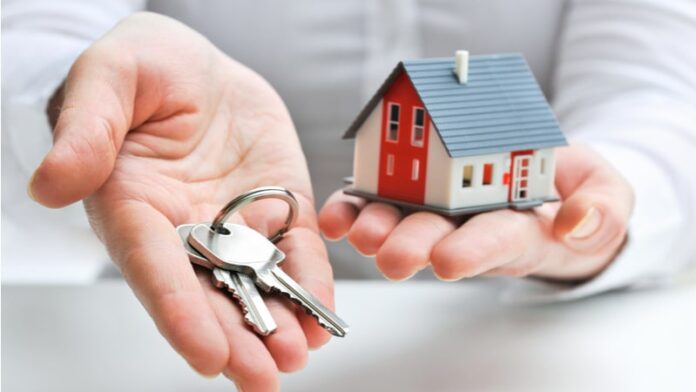According to Halifax, the average price of a home in the United Kingdom reached a new high of £276,091 in December 2021. In 2021, house prices grew by 9.8%, the highest percentage increase since July 2007. Property professionals UK say for buy-to-let investors who decide to sell their properties, rising house prices mean significant capital gains. On the sale of a buy-to-let property or a second home, capital gains tax (CGT) is due. Find out if you have to pay CGT on the property you’re selling and how much it will cost you.
Is there a Capital Gains Tax on the property?
Capital Gains Tax (CGT) is a tax on the profit earned when you sell an asset that has appreciated in value. It applies to property that isn’t your primary abode, such as a buy-to-let or second house.
What are the property CGT rates?
CGT is imposed at 18 percent for standard rate taxpayers and 28 percent for higher rate taxpayers on property sales. This is based on any profit made on the property after deducting your CGT allowance.
CGT is only taxed at 18 percent on the amount a seller has available in the base rate band, according to tax experts. Because of the amount of property value gains in Wimbledon Village, the basic rate band is frequently used up, and the majority of gain is taxed at a rate of 28 percent, even if the person is a basic rate income taxpayer. As a result, your tax rate is determined by the size of the gain as well as your other taxable income, not just whether you are a basic rate taxpayer.
What is the limit on my Capital Gains Tax exemption?
Every taxpayer has an annual CGT allowance, which allows them to earn a specific amount of money tax-free. The current capital gains allowance is £12,300. If you and your spouse own the property together, you can combine your CGT allowances.
How can I figure out how much money I’ve made in capital gains?
The profit (gain) you made from selling your property is subject to capital gains tax. Subtract the amount you paid for the property from the sale price to calculate the profit. Vendors can deduct both buying and selling expenditures through HRMC. This includes estate agent and legal fees, as well as any stamp duty paid when the rental home was purchased. It is also possible to deduct the cost of improvement work. Extensions are included, but not upkeep fees like beautifying. Over and above your allowance, you will have to pay CGT on your combined gains.
When am I required to pay Capital Gains Tax?
Any Capital Gains Tax on UK property must be reported and paid within 60 days after completion.
Do I have to pay capital gains tax on the sale of my second home?
If HRMC determines that a property is not your primary residence, you must pay GCT. If you have more than one home, you can choose which one is your primary residence; it’s a good idea to choose the one that you think will sell for the most money. Married couples and civil partners are limited to having only one primary house. Couples who are not married might each choose a different residence.
Do I have to pay capital gains tax on my buy-to-let investment?
Even if it is your only property, you will have to pay GCT if the value of your buy-to-let property has increased by more than your capital gains allowance.
Do I have to pay capital gains tax on property I inherited or received as a gift?
If you give your child property as a gift, you must still pay Capital Gains Tax on it as if you had sold it. In this case, the market value of the property will be used instead of the sale price, and the same costs will be deducted to calculate your total gains.
If you sell a property you inherited without making it your own, you’ll owe GCT on the difference in value between the time you bought it and the time you sell it, minus any selling costs. GCT is not applied to property transferred to a spouse, civil partner, or charity.
What are my options for lowering my capital gains tax bill?
Deduct costs
When calculating your CGT bill, you can deduct the costs of buying and selling property from your gain. Consider the following scenario:
- Fees for solicitors and estate agents when purchasing and selling a home
- When purchasing a home, there is a stamp duty to pay.
- Expenses associated with enhancing the property, such as paying for an extension
Make up for your losses
You can also use the proceeds from the sale of other assets to offset any losses. Make a claim for your losses by filing a tax return. Losses are recoverable for up to four years after they occur.
Take advantage of your spouse’s allowance
If you are the single owner of the property, you can split ownership with your spouse, doubling your GCT allowance when it comes time to sell.
Use the GCT bands to your advantage
If you are a higher-rate taxpayer but your spouse is not, you may be able to lower your GCT payment by transferring all or part of the property to their name.
Make your sale at the right time
Consider postponing the sale until the next tax year if you have additional Capital Gains in the current tax year. This will allow you to use your entire allowance.
Make a smart nomination for your primary residence
If you own multiple properties, you can choose which one will be tax-free; it does not have to be the one where you spend the most of your time. If possible, choose the property that you believe will bring you the most money when you sell it.
However, you cannot deduct charges related to property maintenance or mortgage interest. You have two years from the date you move into your new home to declare it your primary residence.
Relief for Private Residences
If you lived in a house before renting it out, you can claim Private Residence Relief for the time you lived there as well as the last nine months you owned it.
For example, suppose you make a £200,000 profit on the sale of a home you’ve owned for ten years. You stayed in the house for five years before renting it out for the same amount of time. For the time you stayed in the house plus nine months – 57.5 percent of the time – you can claim Private Residence Relief. 57.5 percent of the gain (£115,000) will be tax-free. The remaining £85,000 of gain will be subject to GCT.
Relief from Lettings
If you resided in your house with your tenants at the same time, you may be eligible for Letting Relief, which lowers your capital gains tax burden.


















